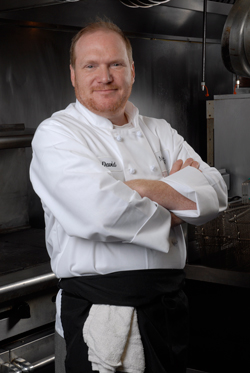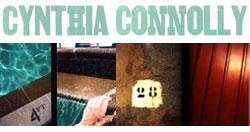Management Style: I set the tone of the work place, and am responsible for creating an environment where employees will succeed. My role is to be responsible to the people I manage: I am there to make sure that they have the tools to do their jobs, and their success or failure falls on my shoulders. In hiring people, I excel at finding the right position for the person, and vice versa. I do not believe in shoe-horning a person into a job, but making the fit right for both the individual and the team. I believe in teams. I love building teams and witnessing the cohesion of a team develop, growing into an entity unto itself. I believe that a customer’s positive experience, and hence the businesses profitability, starts with treating the employee first and foremost as a human being who deserves my respect, no matter the position, and investing in them by teaching, providing positive feedback, listening to suggestions, and being clear in my communication without being condescending or dismissive. Building a loyal team not only creates a positive work environment but a successful business. My best work is collaborative, whether it is with my fellow managers, engaging the people who work for me, or discerning the desires of the clientele that I serve. I love the creative experience of building with others, and I thrive on the nuances of building unique relationships.
Creative Passions: While I thrive in being successful, having the spotlight, and love the attention that comes with making people happy, I have no desire to intrude on a guest’s experience. What excites me is knowing that we have taken care of a guest, that we have succeeded in our task. At my core, I believe my own success comes from the collaborative work experience, and it is something which drives my creativity, whether it be with a purveyor that has something exciting to sell me, a management team member who wants to put together a special event, a customer who has unusual requests, or an employee who wants to learn and stretch themselves. These become challenges to engage me and excite me. While I have come up with original ideas, they tend to be less important to me than the act of creating with others.
Culinary Philosophy: I have one basic question that must be answered before all others: is it yummy? After that, I will digress into intellectual arguments for or against what I am serving (i.e.: is it local, seasonal, sustainable, cruelty free, how processed, what kinds of compromises am I making, how can I offset those compromises…). I believe that Vegetarians mostly have it right, though not entirely. Our environment is in danger from industrial farming. Factory farming, mono-culture, lack of biodiversity, genetic engineering, dangerous chemicals, ad infinitum, does not produce healthy food. Food subsidies that reward mono-culture, that do not support small farmers, have created a situation where we will not pay what food is actually worth. It has screwed with our economy — remember Farm Aid? The situation literally forces us to eat something that is substandard and a new invention, something that was never in the human diet and now creates its own set of problems. I am a traditionalist in many respects, and I come by it honestly: I learned through exposure at an early age to appreciate traditional, and often conservative, cultures. True conservatism would not embrace the horrors of what Monsanto is creating. A set of radical business men co-opt the term… I love the received wisdom of cuisines passed down: the techniques of cookery, food in season, the rituals of dining, and the joy of celebration. While in my career I have come up with some original dishes and techniques, I will always be loyal to those who practiced their craft before me. The experience of cuisine, the rituals of dinning, is central to who we are as human beings. And in the midst of my critique, I find that I will make compromises because, well, perhaps a deep fried Twinkie is exceptionally yummy? Maybe it is worth cruelty for me to experience the lushness of foie gras? Perhaps, before it is extinct, I will have one more opportunity to experience the pop, the salinity, the mouth feel, the oiliness and fishiness of Beluga caviar… I cannot help but be human: a sensualist, a hedonist, a hunter. The idea of eating something that is completely unnatural is something we look down on, and yet we do every day with guilty(or oblivious) pleasure. The idea of eating something on the verge of extinction or consuming that which creates unimaginable suffering goes against the mores of our contemporary culture, and we view as primitive as the peasant and his gavage. Yet we tolerate the grossest of cruelties in our mass production. The rituals and traditions of dining rein in our base animal hungers, and give them structure, a frame work to set us apart from “primitives”, simultaneously separating us from the true nature of our food: what it is and where it came from. I am trusted to make those decisions for the diner, to filter it so that they may eat in good conscience. Dining itself is a civilized act; it is my job to harness the rituals and traditions, and thereby showcase our hungers in an acceptable form. Thorstein Veblen, the late 19th and early 20th century Political Economist who originated the idea of “conspicuous consumption” critiques me through it all.



